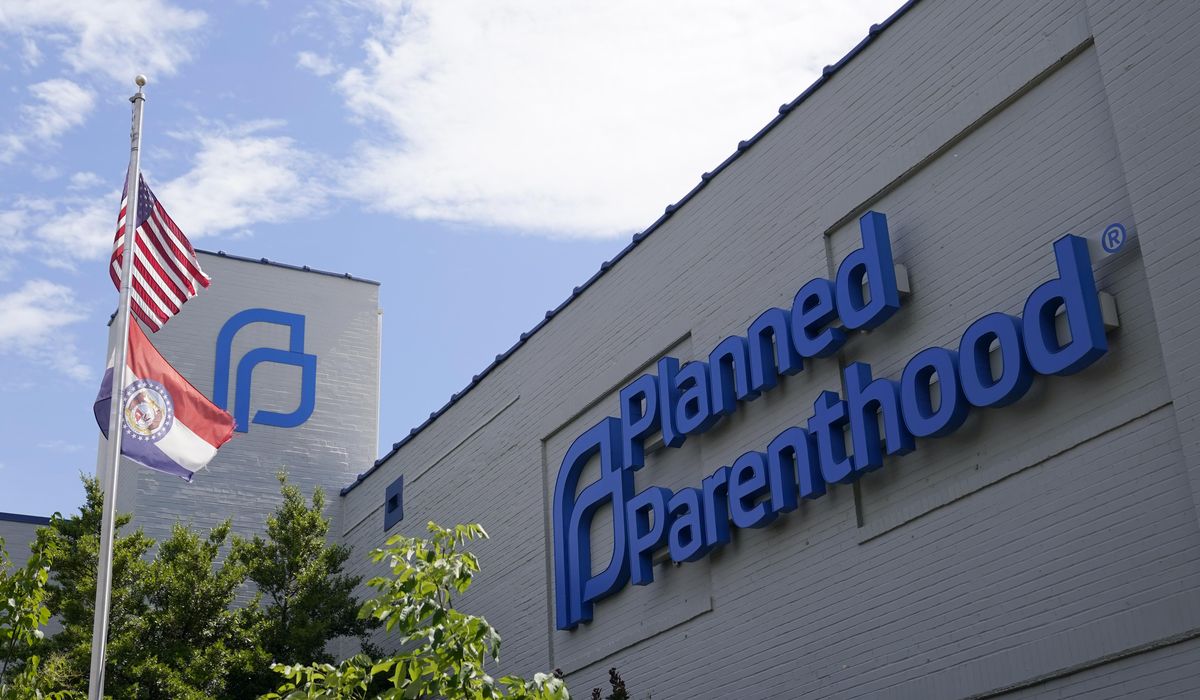


Democratic attorneys general sought Tuesday to block enforcement of the federal measure defunding Planned Parenthood, a day after a judge did exactly that in response to a separate lawsuit.
The coalition of 22 Democratic attorneys general and Pennsylvania Gov. Josh Shapiro filed a lawsuit asking for a preliminary injunction to prevent the Trump administration from stopping Medicaid payments to Planned Parenthood under the budget reconciliation law’s “Defund Provision.”
If that sounds familiar, it’s because U.S. District Judge Indira Talwani issued a preliminary injunction Monday halting the provision pending the outcome of litigation filed earlier this month by the Planned Parenthood Federation of America and two of its state affiliates.
Both lawsuits were also filed in the same court: the U.S. District Court for the District of Massachusetts.
As a result, it’s possible that Judge Talwani, an Obama appointee, could hear the Democratic attorneys’ general challenge to the defunding provision, which bans Medicaid payments for abortion providers that received more than $800,000 in reimbursements in fiscal 2023.
In her Monday order, Judge Talwani expanded her previously issued partial injunction by extending it to include all Planned Parenthood affiliates nationwide.
She also ruled that Planned Parenthood was likely to succeed on its challenge to the provision’s constitutionality.
The organization, America’s largest abortion provider, argued that the defunding section violates the First Amendment, the Fourteenth Amendment’s Equal Protection Clause, and the Article I prohibition against bills of attainder.
In their lawsuit, the Democrats also argue that the law’s defunding provision violates the same three constitutional provisions.
Why file a separate complaint?
The states made at least one unique argument: that they will be forced to “carry out this unconstitutional agenda” or lose federal funding, given Medicaid’s structure as a federal-state partnership.
States will have to determine which health-care providers are “prohibited entities” under the law, even though, the lawsuit says, the definition is “unworkable and vague,” and requires access to national claims data that the states do not have.
“In addition to administrative burdens, the Defund Provision will force Plaintiff States either to use state funds to keep Planned Parenthood health centers operating and forgo matching federal funds, or exclude the Planned Parenthood health centers from any state Medicaid program and lose critical healthcare infrastructure,” said the lawsuit.
The complaint described the predicament as an “untenable choice.”
California Attorney General Rob Bonta said that some Planned Parenthood clinics were left in the lurch as the original 14-day temporary injunction was set to expire July 21. The court granted an emergency preliminary injunction the same day that covered some clinics.
Even so, Mr. Bonta said Planned Parenthood facilities in California stand to lose $300 million in federal Medicaid reimbursements.
“The President and Congress are implementing a cruel, backdoor abortion ban through this provision, putting their political agendas over people’s lives,” Mr. Bonta said in a statement. “This will wreak havoc on healthcare services from cancer screenings to STI testing for millions of Americans who have nowhere else to turn.”
A spokesperson for the U.S. Department of Health and Human Services said that states “should not be forced to fund organizations that have chosen political advocacy over patient care.”
In an email response to The Washington Times, the spokesperson called it “a shame” that the attorneys general “seek to undermine state flexibility and disregard longstanding concerns about accountability.”
Marjorie Dannenfelser, president of SBA Pro-Life America, accused the Democrats of seeking to circumvent the legislative and executive branches by turning to “activist judges.”
“Let’s be clear: this lawfare is about protecting Big Abortion’s bottom line and the campaign contributions Democrats rake in from Planned Parenthood,” she said.
The states represented in the lawsuit are California, Colorado, Connecticut, Delaware, Hawaii, Illinois, Maine, Maryland, Massachusetts, Michigan, Minnesota, Nevada, New Jersey, New Mexico, New York, North Carolina, Oregon, Rhode Island, Vermont, Washington, Wisconsin, and the District of Columbia.
Pennsylvania joined the lawsuit via Mr. Shapiro, a Democrat. Pennsylvania’s attorney general, Dave Sunday, is a Republican.
• Valerie Richardson can be reached at vrichardson@washingtontimes.com.
